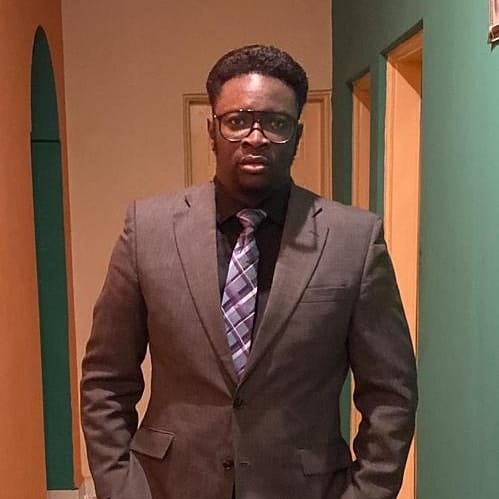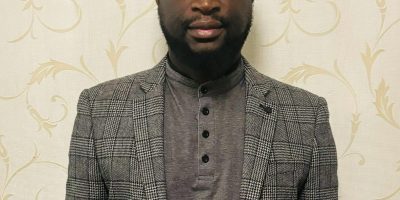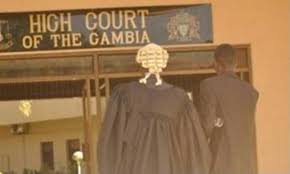 by Alagi Yorro Jallow
by Alagi Yorro Jallow
In the 80s and the early 90s, before the July 1994 military takeover, the Gambia Bar Association was a vibrant organization standing for the rule of law, the welfare of lawyers, justice, and human rights for all Gambians, irrespective of gender, tribe, or any political persuasions. Today, the Bar Association is led by the living dead. They see no evil, and they hear no evil. They cannot speak for people like Melville Robertson Roberts, whose case denied his rights to fair hearings and the benefit of the right to presumption of innocence until proven guilty, as well as a prosecutorial ethical obligation. Mr. Roberts and his alleged victims deserve fair hearings and justice before a competent court. They do not deserve high-tech lynching through a social media mob, in complicity with supposed activists, as well as senior judicial officials of biased prosecutorial decisions.
“What is Justice? Socrates asked. Well, Thrasymachus, who was an extremely wise and formidable advocate, gave a short but impressive definition of justice. “It is giving everyone what is due to them.” So, when some people today begin to rationalize some illegal actions because they do not like the victim, it is unfortunate. A victim is a victim. Even an armed robber deserves a fair hearing. That should be the mantra.
Sometimes, we quite concerned for the efficacy of a legal system that is entirely rigged to demand proof and not necessarily true; the result is that justice in such society assumes a grotesque meaning and character completely isolated from equity.
The doctrine of the rule of law can be traced back to the Greek philosopher Aristotle, but it is often associated with Professor A. V. Dicey, who, in 1885, provided three basic outlines for understanding it: (1) No man can be punished except under the law and before ordinary courts of the land. That is, you can only be punished according to established law, not the whims and caprices of government or an individual. (2) No man is above the law, and every man is equal before the law, be he king or plebeian. And (3) the general principles of the Constitution, as interpreted by the courts, shall prevail. In summary, therefore, the rule of law is about fairness, justice, equality, due process, accountability, impartial application of the law, and proper administration of justice. Whatever other interpretations or conventions may have governed Dicey’s original clarification in other jurisdictions, there seems to be a universal meeting of minds to the effect that the rule of law is paramount. Where there are no laws, you will find the rule of men. Thomas Hobbes identifies this as a state of nature, where cruelty, nastiness, and brutishness could be the order of the day. Indeed, any attempt to define the rule of law outside the province of justice is a journey toward a state of anarchy, as defined by Hobbes, or at best, what Lord Hailsham calls elective dictatorship.
Mr. Roberts needs safety and security protection by the institutions that exist in our society, which handle matters such as this, even as justice waits to be served. He needs justice, just as his alleged victims also deserve justice.
Mr. Roberts is innocent in the eye of the law. Under the law, Mr. Roberts is presumed innocent until he is proven guilty. We know the presumption of innocence in The Gambia is a charade, and it provides the most straightforward loophole for social media activists and judicial officers on the high-tech lynching on Mr. Roberts. It should be reversed. “Every person who is charged with a criminal offense shall be presumed to be innocent until he is proved guilty. Why are the so-called social media activists trying and lynching Mr. Roberts on social media? Why is the justice system celebrating this? Where is the principle of presumption of innocence in Gambia’s criminal justice system?
One of the formulations of the rule of law contrasts it to the “rule of man” and is often expressed either as ‘the rule of law, not man’ or ‘a government of laws, not men.’ Basically, it expresses the ‘idea that to live under the rule of law is not to be subject to the unpredictable vagaries of other individuals—whether monarchs, judges, government officials, or fellow citizens.’ In this understanding, the rule of law shields us from ‘the familiar human weaknesses of bias, passion, prejudice, error, ignorance, cupidity, or whim.’ Moreover, to make the ‘rule of law, not man’ possible, it is necessary to establish a criminal justice system as the guardian of the law and populate it with judicial officers who are ‘unbiased, free of passion, prejudice, and arbitrariness, loyal to the law alone.’
The National Human Rights Commission has a mandate to eliminate all forms of discrimination. The National Human Rights Commission is now led by Emmanuel Joof, a quintessential Human Rights Lawyer who will speak for the rule of law and protect the independence of the judiciary. He is in a better position and is able to offer leadership to the Human Rights Commission. The declining respect for the rule of law is profoundly worrying those who have ever stood against dictatorship and human rights in this country. Why can’t he speak for Melvin Roberts, whose human rights have consistently been violated on social media and the Department of Justice? Everything is fine.
The Gambia Bar Association led by a meek leadership—who would rather eat peacefully than rattle a despotic leader—can not raise a voice against the abuse of office by Justice Department officials’ display of bias prosecutorial decision in the media. They have nothing in their old store for Melville Robertson Roberts.
The Solicitor General portrayed himself as a novice who does not understand the legal process. Courts are not rubberstamping for the prosecutor’s actions. Courts are supposed to apply the law and Constitution judiciously and impartially. Judges/magistrates hear both sides and apply their minds to matters in a manner that a just society expects of them. Why is the Solicitor General undermining time-honored constitutional law principles that underpin the innocence of accused persons until proven guilty?
The law is an ass, the saying goes. However, there is a school of thought that believes it is the judicial officials in the justice departments—like judges and magistrates—who are the ass and not the law. Better still, those on the conservative divide refer to our criminal justice system as the police and state prosecutors, but to some discerning members of the liberal pedigree, it should be called courts of law and not courts of justice.
This school of thought believes that people do not receive justice in the courts, but the application of the law without justice. Falling back on empirical examples that are legion, one cannot blame those who draw this thin line of distinction between law and justice.
Judicial officials, being human beings, are susceptible to human frailties, foibles, and follies like other mortal beings.
Those who thought of using the courts as an arena for adjudication of disputes seemed to realize this and made provision for an in-built mechanism to test or challenge what could have been perceived as faulty decisions of the criminal justice system of the first instance.
To get things right again in The Gambia, there has to be a bit more than the usual dose of proactive thinking. There is a reason we should retain the presumption of innocence clause in our Constitution at all times, especially where it concerns serious crimes. Countries whose criminal justice systems were not even as bad as The Gambia’s have had to adapt with new, potent weapons of administering justice. We need to adapt quickly.
Many factors influence decision-making in the prosecution of Mr. Melville Robertson Roberts’s case. The Solicitor-General is advised to read Albie Sachs’s The Strange Alchemy of Life and Law. Judicial officials do not make decisions in juridical abstractions, and acting in melodramatic fashion, Gambians must expect the prosecutorial decision to be scrutinized to the deepest possible. Human emotions, feelings, idiosyncrasies, perceptions, etc. are all part and parcel of the judicial process. They affect judicial outcomes. Judicial officers can’t talk to the media, they cannot address press conferences, but they are deeply aware of what is happening in society. In our view, the image of the Solicitor-General’s doubting a police investigation report in the media circus has compromised the prosecution decision of Mr. Melville Robertson Roberts’s case. As David Hume said, the reason is the slave of passion. In the decision, judicial officers have come out to protect the institutional integrity, prestige, independence, and profile of the judiciary and criminal justice system.
The Ombudsman cannot and will not speak for Melville Robertson Roberts. All state organs mandated to strengthen our bill of rights and privileges as citizens have zipped their mouths. Sadly, the once-vibrant civil society is also dead or dying. They have no voice.
The media, once led by brave Gambians like Deyda Hydara, is now a moribund appendage of the executive and the judiciary. Nobody bravely uses the power of their pen and voice to speak against the rape of one citizen.
Our National Assembly, established for the welfare of society and the just government of men, sits idly by as a man whose placenta was buried here is thrown to the dogs. Religious leaders, suffocating under excess supply of banknotes from the executive, would instead place their hands on the heads of the two than stamp their feet on the rape of a nation.
We believe the judiciary has a vital role to play in this country, as it is the last hope of the common man. The judiciary has to be firm, fair, and courageous and must not employ any form of double standards and cannot condone any attempt to destroy the Judicial system in this country using Mr. Roberts as a scapegoat.
Moreover, his kin, who should lead the fight against the flagrant violation of the rights of one man, has mostly been “zombied” to toe the line of “if our man does not want him, so we should too.” The words of German Lutheran pastor Martin Niemoller will one day ring true. In 1930’s Germany, the atmosphere was very much like it is here now. The people there did just like we are doing now. It was the regular people who identified the expendables for the government. Neighbor turned on neighbor, and a co-worker turned in co-workers; family members turned on and turned in their family. The government demanded that everyone act as the police, to spy and inform on everyone around them and report suspicious activity. The Gestapo (secret police) was believed to be everywhere, and the fear was like a coat everybody wore. It was not just Jews who were the final solution (put in concentration camps, experimented on, tortured and killed); it was people of color, gypsies, the mentally disabled, the poor, the incarcerated, and anyone else you did not like.
“In Germany, they came first for the Communist
And I didn’t speak up because I wasn’t a Communist.
Then they came and got the Jews
And I didn’t speak up because I wasn’t a Jew.
Then they came for the trade unionists,
And I didn’t speak up because I wasn’t a trade unionist.
Then they came for the Catholics,
And I didn’t speak up because I was a Protestant
Then they came for me,
And by that time, no one was left to speak up.”
“A High-Tech Lynching”: How Melville Robertson Roberts took a page from Thomas?



Ma sha Allah great and thanks for sharing